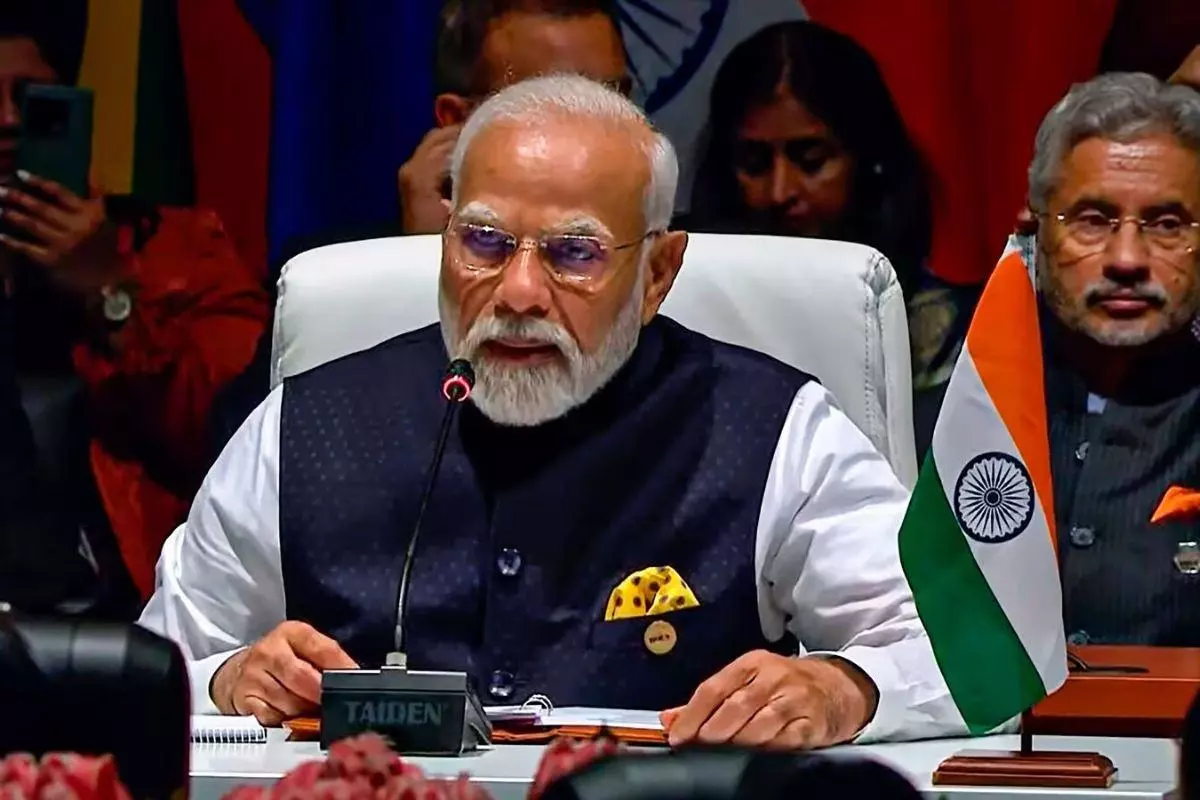
PM Modi
On Tuesday, Prime Minister Narendra Modi emphasized a message reflecting the global reluctance to rely on China as the “factory of the world” by calling for the creation of a robust and inclusive supply chain.
“The Covid epidemic has shown us the value of robust supply chains with inclusive business practices. Transparency and trust are essential for this. In his speech to the Brics Business Forum in Johannesburg, the prime minister remarked, “We can draw on each other’s strengths to help improve the entire world, especially the Global South.
Significantly, Modi’s remarks came ahead of his likely interactions, including a possible one-on-one with Chinese President Xi Jinping, and in the presence of Beijing’s commerce minister Wang Wentao.
India has joined the US, Australia, Japan and others in seeking to build a “resilient supply chain”, a euphemism for reducing dependence on China, which has been flooding western markets with everything from garments to gadgets, making use of a liberal trade regime.
During the pandemic, with many countries dependent on supply of masks and test kits from the Asian giant, the world became acutely aware of the risk posed by China’s dominance and several countries have initiated steps to shore up domestic manufacturing. India too has been seeking investments through the production linked incentive scheme and other initiatives, which Modi flagged in the presence of South African President Cyril Ramaphosa and Brazilian President Luiz Inacio Lula da Silva.
Russian President Vladimir Putin has not travelled to South Africa for the summit and will join virtually.
Modi’s remarks, articulating the need to diversify supply chains, something that has found expression in the West’s “de-risking” and China+ strategies, acquire significance also because of the setting.
PM calls for Brics digital payment pact like one between India & France
The Asian giant has been flooding western markets with everything from garments to gadgets, making use of a liberal trade regime.
During the pandemic, with many countries dependent on supply of masks and test kits from the Asian giant, the world became acutely aware of the risk posed by China’s dominance and several countries have initiated steps to shore up domestic manufacturing. India too has been seeking investments through the production-linked incentive scheme and other initiatives, which Modi flagged in the presence of South African President Cyril Ramaphosa and Brazilian President Luiz Inacio Lula da Silva. Russian President Vladimir Putin has not travelled to South Africa for the summit and will join virtually.
The context also adds relevance to Modi’s comments on the need to diversify supply chains, which have been expressed in the West’s “de-risking” and China+ plans. Because China has been eager to utilize the Johannesburg gathering to advance Brics as a rival to the international system controlled by the West. Since the LAC match, tensions between India and China have risen.In the midst of agreements on UPI and payment systems with nations like Singapore, the United Arab Emirates, and France, Modi proposed a similar alliance among the Brics countries and claimed that India now accounted for the greatest number of digital transactions. He emphasized how India would be a significant engine of global economy and stated the group of emerging nations could play a critical role.
“Despite the churn in the global economy, India is the world’s fastest growing major economy. Soon, it will be a $5 trillion economy. There is no doubt that in the coming years, India will be the world’s growth engine. It is possible because India has used the difficult time to turn it into an opportunity to undertake economic reforms,” the PM said.

















